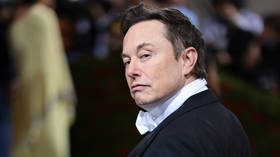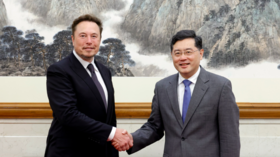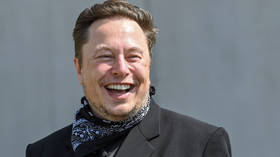Why Elon Musk’s visit is important for China
When Washington politicians can’t see reason, Beijing hopes to engage with the US’ most influential businessman

Twitter owner and Tesla CEO Elon Musk went on a tour of China this week. It was his first visit to the country since 2019, after a hiatus during the Covid-19 pandemic.
Musk met with China’s foreign minister Qin Gang, before later meeting Vice Premier Ding Xuexiang. During these meetings, he discussed his Tesla factory in Shanghai for electric cars, as well as the Lithium battery supply chain.
Although in practice it was all about business, the political symbolism of the trip on both sides is unmistakeable. Beijing did not keep Musk’s visit low-key nor leave it by the wayside, but placed it on a megaphone and amplified it aggressively through its media channels. It wanted the world to know very clearly that not only was a major American tech figure and entrepreneur in town, but was engaging with its leaders.
When was the last time an American politician or official visited Beijing and got such a reception? While not discounting the fact that few will do so for political reasons, even those who do, be it Anthony Blinken or Wendy Sherman, are given a frosty and hostile reception. In fact, since the “spy balloon” incident at the beginning of the year, China has even gone as far as putting high-level communications with the US on ice completely. The refusal to meet with US Secretary of Defence Llyod Austin at the Shang-ri-la dialogue in Singapore, is one such example.
But that does not mean China is not interested in engaging with the US at all. Rather, China sees engaging with American politicians as a waste of time, and instead sees greater political gain in using high profile individuals such as Elon Musk to drive practical and results-based engagement. Apple CEO Tim Cook also conducted a similar trip to China earlier this year. What is the purpose and message? Despite surging tensions and uncertainties, Beijing continues to see the American business community, who are not Anti-China by nature of what they do, as its best bet.
Right now, US politics is in a race to the bottom concerning China. The atmosphere of US foreign policy debate is lethally toxic, lost in a maelstrom of paranoia, irrationality and mass hysteria over Beijing. Politicians compete to shout the loudest on who can vilify China, seek to regularly provoke tensions over matters such as Taiwan, and of course lock the debate by accusing anyone who questions their narrative as being soft on Beijing. This has created an echo chamber which has made it impossible to improve relations on a political level.
But the business community is different, because American companies see financial opportunity in China and its market, something they have engaged with for over 40 years. Behind the scenes, businessmen attempt to lobby politicians to ensure their interests are preserved, even if they aren’t having much luck when it comes to China, and this has made them perhaps the only consistent voice in opposing the anti-China rhetoric pushed by Washington DC over the past few years. While of course they are forced to contemplate the political risks of engagement, a factor they cannot control and that politicians can use to coerce them, they are a moderating voice of reason.
And on that premise, someone like Elon Musk is very important. Although his political viewpoint is very right wing, and he is of course South African, rather than American, it is undeniable that he has established himself as one of the most influential businessmen in the US right now, and fortunately for Beijing he has an open mind and amicable attitude towards China. In taking control of Twitter, one of the world’s most influential social media platforms, Musk has pursued a policy of free speech which has rolled back anti-China measures implemented by its predecessor CEO Jack Dorsey.
It is no surprise given these factors that China has made a political show out of courting Musk, realising figures like him can indirectly “steer” the US-China relationship towards safer ground and set a precedent for other businessmen too, sending the message that despite everything that is going on China is still open for business. In doing so, Beijing sees the co-opting of the business community as a critical force in resisting a “decoupling” push by the US, as well as what it describes as a “Cold War mentality” and therefore a moderating factor. If politicians have become completely unreasonable, this is the response.
This ironically has made Musk more vital to the US-China relationship than America’s ambassador himself, Nicholas Burns. Thus, while China is politically infuriated at the US right now, it is not giving up hope that in many areas, engagement with the US can still be in its fundamental interests.
The statements, views and opinions expressed in this column are solely those of the author and do not necessarily represent those of RT.
https://www.rt.com/news/577415-elon-musk-china-visit/



0 Comments:
Post a Comment
Subscribe to Post Comments [Atom]
<< Home